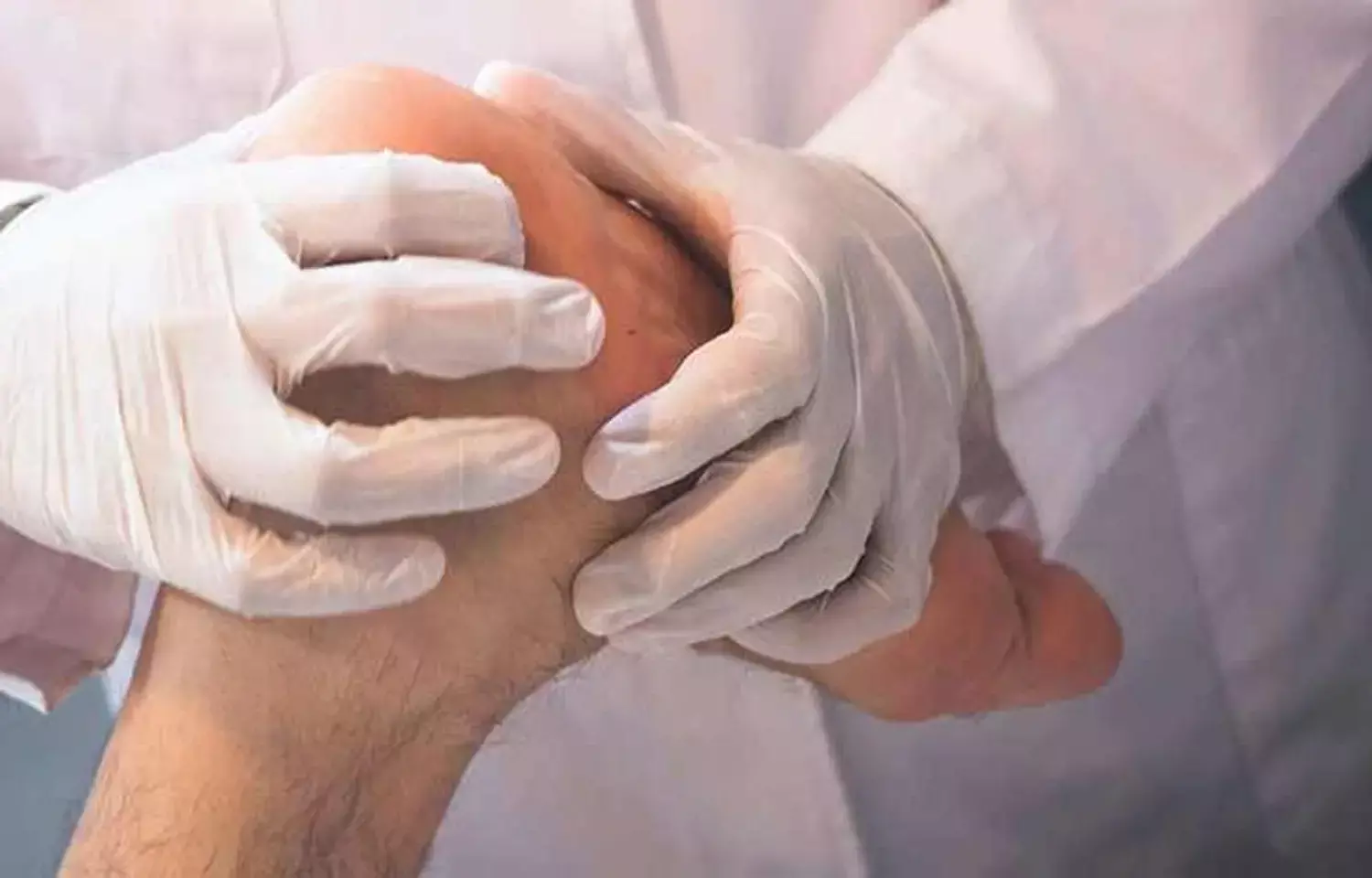- Home
- Medical news & Guidelines
- Anesthesiology
- Cardiology and CTVS
- Critical Care
- Dentistry
- Dermatology
- Diabetes and Endocrinology
- ENT
- Gastroenterology
- Medicine
- Nephrology
- Neurology
- Obstretics-Gynaecology
- Oncology
- Ophthalmology
- Orthopaedics
- Pediatrics-Neonatology
- Psychiatry
- Pulmonology
- Radiology
- Surgery
- Urology
- Laboratory Medicine
- Diet
- Nursing
- Paramedical
- Physiotherapy
- Health news
- Fact Check
- Bone Health Fact Check
- Brain Health Fact Check
- Cancer Related Fact Check
- Child Care Fact Check
- Dental and oral health fact check
- Diabetes and metabolic health fact check
- Diet and Nutrition Fact Check
- Eye and ENT Care Fact Check
- Fitness fact check
- Gut health fact check
- Heart health fact check
- Kidney health fact check
- Medical education fact check
- Men's health fact check
- Respiratory fact check
- Skin and hair care fact check
- Vaccine and Immunization fact check
- Women's health fact check
- AYUSH
- State News
- Andaman and Nicobar Islands
- Andhra Pradesh
- Arunachal Pradesh
- Assam
- Bihar
- Chandigarh
- Chattisgarh
- Dadra and Nagar Haveli
- Daman and Diu
- Delhi
- Goa
- Gujarat
- Haryana
- Himachal Pradesh
- Jammu & Kashmir
- Jharkhand
- Karnataka
- Kerala
- Ladakh
- Lakshadweep
- Madhya Pradesh
- Maharashtra
- Manipur
- Meghalaya
- Mizoram
- Nagaland
- Odisha
- Puducherry
- Punjab
- Rajasthan
- Sikkim
- Tamil Nadu
- Telangana
- Tripura
- Uttar Pradesh
- Uttrakhand
- West Bengal
- Medical Education
- Industry
5-day prophylaxis with antibiotics controls surgical site infections in lower limb amputations

UK: A new study showed that when compared to a 24-hour treatment, a 5-day course of antibiotic prophylaxis was related to a reduction in both surgical-site infections (SSI) and impaired wound healing (IWH), and thus reduced the need for further surgery in lower limb amputation (LLA). The findings of this study were published in the British Journal of Surgery.
Lower limb amputation is commonly regarded as "clean surgery," however surgical-site infection rates are substantial, and antibiotic prophylactic technique varies significantly. As a result, Panayiotis Souroullas and colleagues conducted the study to assess if a 5-day course of antibiotic prophylaxis is preferable to a 24-hour course in avoiding SSI in patients receiving minor and major lower limb amputation.
Patients having minor and major amputations from a single vascular unit were enrolled for this trial and randomly assigned to either a 5-day or a 24-hour prophylactic course of antibiotics. Patients who had a high level of infection at the start were excluded. The prevalence of SSI and impaired wound healing (IWH), both defined using ASEPSIS criteria, the necessity for further surgery, the length of hospital stay, and death up to one year were among the outcomes studied.
The key findings of this study were as follows:
1. The research included 161 individuals, of whom 152 were included in the analysis.
2. A 5-day treatment of antibiotics was related to a reduced occurrence of SSI and IWH.
3. The 5-day therapy resulted in fewer individuals requiring amputation revision surgery.
4. The length of hospital stay and death rates were comparable.
5. The existence of SSI and IWH necessitated revision surgery.
6. SSI lengthened hospital stay: median 28 (IQR 16–40) versus 14 (9–21) days.
In conclusion, the findings of this study clearly indicate that after LLA, SSI and IWH are prevalent and have a substantial influence on the outcome and the superiority of a 5-day course over 24 hours course of antibiotics.
Reference:
Souroullas, P., Barnes, R., Carradice, D., Smith, G., Huang, C., & Chetter, I. (2022). Extended-course antibiotic prophylaxis in lower limb amputation: randomized clinical trial. In British Journal of Surgery (Vol. 109, Issue 5, pp. 426–432). Oxford University Press (OUP). https://doi.org/10.1093/bjs/znac053
Medical Dialogues consists of a team of passionate medical/scientific writers, led by doctors and healthcare researchers. Our team efforts to bring you updated and timely news about the important happenings of the medical and healthcare sector. Our editorial team can be reached at editorial@medicaldialogues.in.
Dr Kamal Kant Kohli-MBBS, DTCD- a chest specialist with more than 30 years of practice and a flair for writing clinical articles, Dr Kamal Kant Kohli joined Medical Dialogues as a Chief Editor of Medical News. Besides writing articles, as an editor, he proofreads and verifies all the medical content published on Medical Dialogues including those coming from journals, studies,medical conferences,guidelines etc. Email: drkohli@medicaldialogues.in. Contact no. 011-43720751


